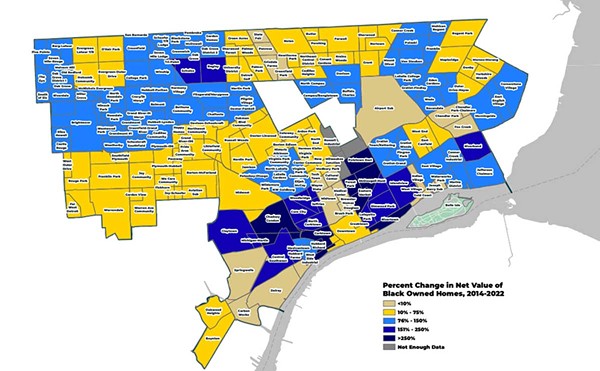There's nothing much on the outside of Felton and Ida Williams' modest Ecorse home to distinguish it from other look-alikes on the block. But what does set it apart, no doubt, is the treasure trove of gospel recordings stored in his basement. Inside, the tastefully decorated house is a veritable metro Detroit time capsule from the late '60s and early '70s. And it's as if time stood still since Gerald Ford was in the White House; pictures (circa-'70s) of the Williamses and their children hang above the living room couch, amid encyclopedias and classic furniture. Endless volumes from the Time-Life library line the basement walls. There are seemingly endless boxes of reel-to-reel master tapes.
See, from 1967 to 1981, Felton recorded gospel, soul, jazz and funk in his self-built basement studio, which was christened Double U Sound. By day, Felton worked at the Ford Rouge complex as an electrician; at night he recorded, sometimes for hire, sometimes rolling tape for friends.
Felton was a member of the west side's Church of the Loving God, where he played pedal steel guitar in the "sacred steel" style, and the majority of his recordings are gospel or sacred steel. As Felton says, "All soul music comes from the church." (Felton also helped discover and inspire Detroit sacred steel legend Calvin Cooke.)
In 1981, after some years of disappointing sales, Williams closed the studio. But he saved all the recordings he'd done.
More than a quarter-century later, the predominantly soul and private press archaeologists at Chicago's great Numero Group label tracked Felton down and reissued a compilation of his recordings, called Local Customs: Downriver Revival. There were so many recordings in Felton's vaults that, in addition to the CD, Numero included a DVD with more than 200 additional recordings and a documentary on Felton. The set came out in March this year. Anyone with a penchant for Detroit soul music should check it out.





